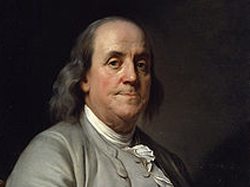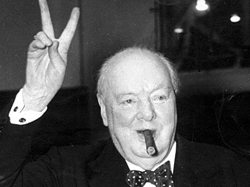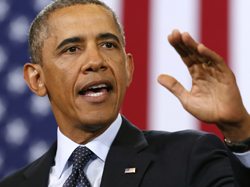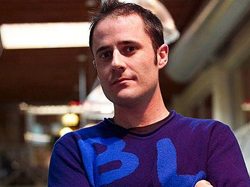Success Advice
9 Daily Routines & Rituals Of Highly Successful People

Many of us think successful people do strange rituals to reach their success.
The truth is that they follow simple routines. They wake up and stick to a game plan. They find freedom in their routine while average people see routine as imprisoning.
To put it into perspective here are the routines and daily rituals of some highly successful people.
The Daily Routines & Rituals of The Highly Successful
1. Maya Angelou (Author)
 Maya Angelou would get up around 5:30 and grab a cup of coffee with her husband. She could only do her work in a hotel or motel room. She would keep a face basin, dictionary, bottle of sherry, and a bible with her.
Maya Angelou would get up around 5:30 and grab a cup of coffee with her husband. She could only do her work in a hotel or motel room. She would keep a face basin, dictionary, bottle of sherry, and a bible with her.
“If the work is going badly, I stay until 12:30. If it’s going well, I’ll stay as long as it’s going well.”
When she arrived home she would go over what she had written. Then she would shower, prepare dinner to unwind by the time her husband would get home.
After their dinner she would read what she wrote to her husband without expecting comments.
2. Benjamin Franklin (Inventor)
 Benjamin Franklin had a strict schedule. He made time for all that was important to him. All at specific times of the day for him.
Benjamin Franklin had a strict schedule. He made time for all that was important to him. All at specific times of the day for him.
His famous question for every day was What good shall I do this day?
He would wake, wash up, eat breakfast then work from 8-12. He would dine with friends and look over his accounts then work for a couple more hours.
He would review his accomplishment for the day and retire. He also adopted the practice of daily air baths. Instead of taking a cold shower, which he felt shocked his body too much, he would stand naked and bath in the cold air.
I rise early almost every morning, and sit in my chamber without any clothes whatever, half an hour or an hour, according to the season, either reading or writing. This practice is not in the least painful, but on the contrary, agreeable; and if I return to bed afterwards, before I dress myself, as sometimes happens, I make a supplement to my night’s rest, of one or two hours of the most pleasing sleep that can be imagined.
I’m not always the best sleeper, so I’m tempted to try this and see if I too can have some of “the most pleasing sleep that can be imagined”!
3. Jack Dorsey (CEO Square & Founder of Twitter)
 This guy is a machine. When he was running both companies he would dedicate 8 hours a day to both!
This guy is a machine. When he was running both companies he would dedicate 8 hours a day to both!
The only way to do this is to be very disciplined and very practiced – Jack Dorsey
To deal with distractions of the week he created a weekly schedule he would stick to everyday so he knew what he was working on.
Monday: Management and running the company Tuesday: Product Wednesday: Marketing and communications, growth Thursday: Developers and partnerships Friday: Company culture and recruiting
4. Winston Churchill (Former Prime Minister of the United Kingdom)
 Winston had a “modern day routine” that many people would love to have.
Winston had a “modern day routine” that many people would love to have.
He woke up at 7am and would stay in bed until 11. He would catch up on local news, eat his breakfast, and speak with his secretaries. He would then bathe, walk outside, the start work with whisky and soda.
For late lunch he would eat with family and friends. At 5 he would take a nap for a couple hours, bathe again and get ready for dinner.
Dinner was considered the highlight of his day, with much socializing, drinking, and smoking that sometimes went past midnight. After his guests left, he would then work for another hour or so before heading to bed.
5. Stephen King (Author)
 When asked about his schedule the legendary writer said:
When asked about his schedule the legendary writer said:
“I have a glass of water or a cup of tea. There’s a certain time I sit down, from 8:00 to 8:30, somewhere within that half hour every morning,” he explained. “I have my vitamin pill and my music, sit in the same seat, and the papers are all arranged in the same places. The cumulative purpose of doing these things the same way every day seems to be a way of saying to the mind, you’re going to be dreaming soon.”
6. Beethoven (Music Composer)
 The famous composer would wake at dawn, have a 60 bean cup of coffee. He would sit at his desk and work until 3:00 pm.
The famous composer would wake at dawn, have a 60 bean cup of coffee. He would sit at his desk and work until 3:00 pm.
He would then take small break during his days. He would then take a walk after midday lunch. He would keep a pencil and music paper with him incase he got some inspiration.
He would visit taverns in the evening and would go out to watch stage plays or meet with friends.
He would rarely work on music in the evening and would go to bed by 10 pm at the latest.
7. Barack Obama (U.S. President)
 Barack starts his day at 6:45 am with a work out and then has breakfast with his family. He starts his work day at 9 am in morning. he handles all the issues that a president must handle. Lobbyist, Bills, reform, global peace treaties, you know the norm. His day ends at 6pm.
Barack starts his day at 6:45 am with a work out and then has breakfast with his family. He starts his work day at 9 am in morning. he handles all the issues that a president must handle. Lobbyist, Bills, reform, global peace treaties, you know the norm. His day ends at 6pm.
Obama has dinner with his wife and daughters to reflect. Of course he has a lot of routines during the day which is top secret. But you see how the normal routine of the beginning and end of his days are.
8. Evan Williams (Twitter, Blogger, Medium Founder)
 Evan Williams, The founder of Blogger, Twitter, and Medium is a machine that works all day right? He actually doesn’t.
Evan Williams, The founder of Blogger, Twitter, and Medium is a machine that works all day right? He actually doesn’t.
Evan Williams makes sure to take a break mid day, to go to the gym. He found out that he was more productive in the morning so he uses that time to get important work done then.
My focus is usually great first thing in the morning, so going to the gym first is a trade-off of very productive time. Instead, I’ve started going mid-morning or late afternoon (especially on days I work late).
9. Ernest Hemingway (Author)
 Hemingway would work as the sun rose until he got all his thoughts out. Unlike most writers who write a lot during the day, he would only write in the morning.
Hemingway would work as the sun rose until he got all his thoughts out. Unlike most writers who write a lot during the day, he would only write in the morning.
He would then hold his thoughts in his head for the remainder of the day, anticipating the next morning where he could get all the of them on paper.
Conclusion
So as you can see. The routines of the people listed about aren’t anything too crazy, beside Ben’s “Air Bath”. They found what worked for them and stuck to it for the span of their professional careers and lives.
What is your routine? Please share it with us in the comments section below.
Success Advice
How to Choose the Best Affiliate Programs for Your Blog
If you follow these steps, you can create an affiliate marketing plan that makes money, fits well with your content, and connects with your readers

Picking the right affiliate programs for your blog is really important. It can make a big difference in how much money you can make and how much your readers get out of your blog. With so many choices out there, deciding which ones to go with can be tricky.
This guide is here to make it easier for you. It will give you clear steps and helpful tips to choose affiliate programs that fit well with what your blog is about, what your readers like, and what you stand for.
For more articles on this theme, please head over to this blog https://blog.partners1xbet.com/.
Understanding Affiliate Marketing
Before you start picking affiliate programs, it’s important to really understand what affiliate marketing is and how it works.
Basically, affiliate marketing is when you promote a product or service on your blog, and then you get paid a little bit every time someone buys something or does something because you recommended it.
It’s great for both the person selling the product and the blogger, because the seller gets more sales with low risk, and the blogger can make money from their blog.
How to Choose the Right Affiliate Programs for Your Blog
1. Assess Your Niche and Audience
The key to doing well in affiliate marketing starts with really knowing what your blog is about and who reads it. Consider the following:
- Your blog’s content: What topics do you cover? Ensure the products or services you promote are relevant.
- Your audience’s interests and needs: What solutions are they seeking? Choose affiliate programs that offer products or services that solve their problems or enhance their lives.
2. Research Potential Affiliate Programs
Once you know what your blog is about and what your readers want, start looking for affiliate programs. Choose ones that are well-known for good products, great customer service, and helpful support for affiliates. Resources to find these programs include:
- Affiliate networks like ShareASale, Commission Junction, and ClickBank.
- Direct searches for “[Your Niche] affiliate programs” in search engines.
- Recommendations from other bloggers in your niche.
3. Evaluate the Commission Structure
The commission structure is a critical factor to consider. Look for programs that offer competitive rates that make your efforts worthwhile. Consider:
- The percentage of commission per sale.
- Whether the program offers a flat rate per action (e.g., per sign-up).
- The cookie duration, which affects how long after a click you can earn commissions on sales.
4. Consider the Program’s Reputation and Sureness
Join affiliate programs with a solid reputation for quality and sureness. This not only ensures that you’re promoting good products but also that you’ll be paid on time. You can:
- Read reviews from other affiliates.
- Check the program’s history and background.
- Look for any complaints or issues reported online.
5. Analyze the Support and Resources Offered
A good affiliate program gives you things like ads to use, training on their products, and helpful managers. Having access to these resources can really help you do a better job at promoting their products.
6. Understand the Terms and Conditions
Before signing up, thoroughly review the program’s terms and conditions. Pay close attention to:
- Payment thresholds and methods.
- Any restrictions on how you can promote their products.
- The program’s policy on affiliate marketing on social media platforms.
7. Test the Product or Service
If possible, test the product or service before promoting it. This firsthand experience allows you to offer genuine charge and build trust with your audience.
8. Look for Recurring Commission Opportunities
Some affiliate programs pay you again and again for subscriptions or services that charge fees regularly. These can provide a more stable income compared to one-time sales commissions.
Implementing Your Choice
After choosing the best affiliate programs, the next step is to smoothly include your affiliate marketing in your content plan. This includes:
- Creating valuable content that naturally incorporates affiliate links.
- Disclosing your affiliate affairs transparently to maintain trust with your audience.
- Tracking your results to understand what works best for your audience and adjusting your strategy accordingly.
Picking the best affiliate programs for your blog involves careful planning, research, and making sure they match what your audience likes and needs.
If you follow these steps, you can create an affiliate marketing plan that makes money, fits well with your content, and connects with your readers.
The real key to doing well with affiliate marketing isn’t just about the products you talk about, but also how much your audience trusts and values your advice.
With enough time, patience, and hard work, your blog can grow into a successful space that earns a good amount of affiliate money and helps your readers choose the right products.
Success Advice
The Power of Ethical Leadership: How Integrity Drives Success
By leading with integrity and ethics, leaders create an environment where employees feel excited to come to work

What differentiates a positive organizational culture that enjoys a clean reputation and long-term success from a toxic culture drowning in scandals, mistrust, and legal fines? (more…)
Success Advice
10 Landing Page Hacks Experts Are Using to Generate Leads
Crafting a landing page that converts is both an art and a science

If you are in the online marketing world, you know the importance of a high-quality landing page. It’s like a secret sauce that can turn a casual user into a solid lead. I will walk you through ten great tips that have worked wonders for me and could do the same for you in creating landing pages that generate leads. (more…)
Success Advice
An Easy to Follow 8 Step Strategy for Creative Problem Solving
A complete process of creative problem-solving encompasses finding problems, developing creative solutions, and implementing your solutions

No matter where you look around the world today, entrepreneurs face a common challenge: The need to stand out from their competitors and win over customers. (more…)
-

 Life4 weeks ago
Life4 weeks agoThe Best Techniques to Boosting Your Memory in a Busy World
-

 Success Advice3 weeks ago
Success Advice3 weeks agoAn Easy to Follow 8 Step Strategy for Creative Problem Solving
-

 Entrepreneurs4 weeks ago
Entrepreneurs4 weeks agoCrisis-Proof Your Business Now: Essential Strategies for Every Entrepreneur
-

 Success Advice3 weeks ago
Success Advice3 weeks ago10 Landing Page Hacks Experts Are Using to Generate Leads
-

 Entrepreneurs2 weeks ago
Entrepreneurs2 weeks agoThe Mindset Shifts Required to Become a Successful Online Entrepreneur
-

 Success Advice2 weeks ago
Success Advice2 weeks agoThe Power of Ethical Leadership: How Integrity Drives Success
-

 Entrepreneurs2 weeks ago
Entrepreneurs2 weeks ago6 Hacks to Boost Your Productivity as a Business Owner
-

 Success Advice1 week ago
Success Advice1 week agoHow to Choose the Best Affiliate Programs for Your Blog






























13 Comments